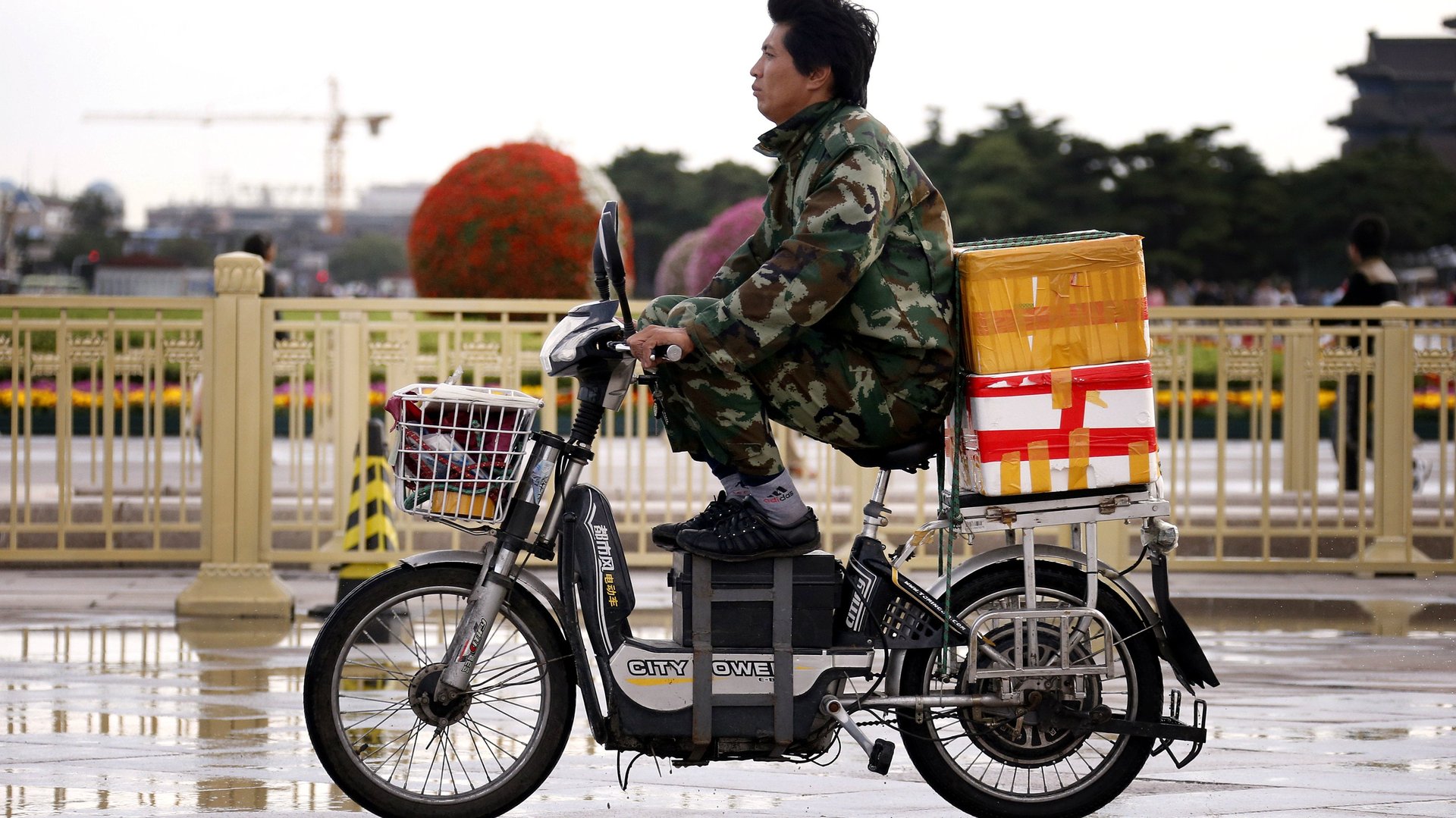A $15 billion tech merger could create China’s biggest meal delivery service—or a giant money pit
Yet another merger has occurred in China’s internet industry, and like those that preceded it, the union looks to be a marriage of convenience rather than romance.


Yet another merger has occurred in China’s internet industry, and like those that preceded it, the union looks to be a marriage of convenience rather than romance.
Dianping and Meituan, which announced a merger yesterday (Oct. 8) are two companies that specialize in a new-ish form of e-commerce. Some call them “on-demand delivery,” others call them “online-to-offline services.” Confusing jargon aside, what makes these companies different than traditional e-commerce firms like eBay or China’s Taobao is they provide instantaneous delivery of goods or services that are only used once, like meals, massages, or car washes.
Both companies have considerable might, and their merger will create an entity valued at about $15 billion. Meituan, which specializes in Groupon-esque coupons, brought in $7.4 billion in gross merchandise volume last year, raised over $700 million from investors including Alibaba, and has over 70 million monthly active users China, according to China AppTracker. Dianping brings in a fraction of Meituan’s revenue, but it has an overall user base that’s more than twice the size of Meituan’s, largely because it originated as a Yelp-esque review site before branching out into meal delivery and restaurant deals.
Despite the size of these two firms, both are engaged in a nasty cash-burning race that’s ultimately the cause of the merger—despite the model’s popularity, on-demand services is a brutal business to be in.
On-demand businesses are often compared to Uber. Much as the latter delivers cars to passengers at the press of a button, in China companies like Meituan and Dianping deliver meals, deals, or other services to users in minutes.
But unlike Uber, which works only with drivers (in most cases), most on-demand delivery startups work with more multi-layered product and labor supplies. Food delivery startup Ele.me, for instance, must source not only deliverymen, but restaurants as well. Companies must not only ensure that the massage is satisfactory and the sandwich is warm, but that the person delivering it is cordial.
“There is no real loyalty towards delivery services, since users only care about how quickly the food can get to you and what the price is,” says Ken Xu, partner at Gobi Partners, a Chinese VC firm. “So from that perspective you have to lower the price and grab the same users as your competitors. [Therefore] you need to do promotions and marketing, and you also have to have lean or almost negative margins in order to keep users on your service.”
As a result, take rates tend to be quite low. Whereas Uber in most countries charges a 20% commission on all of its rides, Meituan and Baidu each take only 2% to 3% on transactions. And given the endless stream of discounts and incentives these companies offer customers and merchants, most continue to operate in the red, including Uber.
In the US, plenty of on-demand booking and delivery startups have faltered after burning through too much cash. Restaurant booking startup OpenTable saw its stock price drop about 50% between 2011 and 2014 before Priceline purchased it for $2.6 billion. Groupon, one of the early inspirations for Meituan, is currently trading at $3.86 per share, an 85% decrease from its first-day closing price. Silicon Valley investor Bill Gurley has been a vocal skeptic of US-based delivery startups like Postmates and Instacart, accusing them of “handing out dollars for 85 cents.”
But in China, enthusiasm for on-demand startups might not be unwarranted, even as many continue to die out (paywall). China’s offline retail industry remains extremely fragmented: In 2012 the top 100 retailers had just 9% of the nation’s overall retails sales. In the US that figure was 57%.
China-focused venture capitalists see on-demand, online-to-offline startups as a new type of retailer that has the potential to scale nationally in ways that many restaurant or massage-parlor chains never have. To draw a crude example, if Alibaba’s Tmall and Taobao made Walmart moot in China, the hope is that Meituan and Dianping could become China’s biggest take-out restaurant.
“Unlike in the US, where you have more developed chain-oriented offline stores, in China we see a lot more mom-and-pops,” says Hans Tung, a partner at GGV Capital, a VC firm with offices in Beijing and San Francisco. “As a result, whoever does get a national service in online-to-offline has a stronger hold on the users. So the allure of being bigger than the US counterpart in this space in China makes it tempting to burn money and grow fast.”